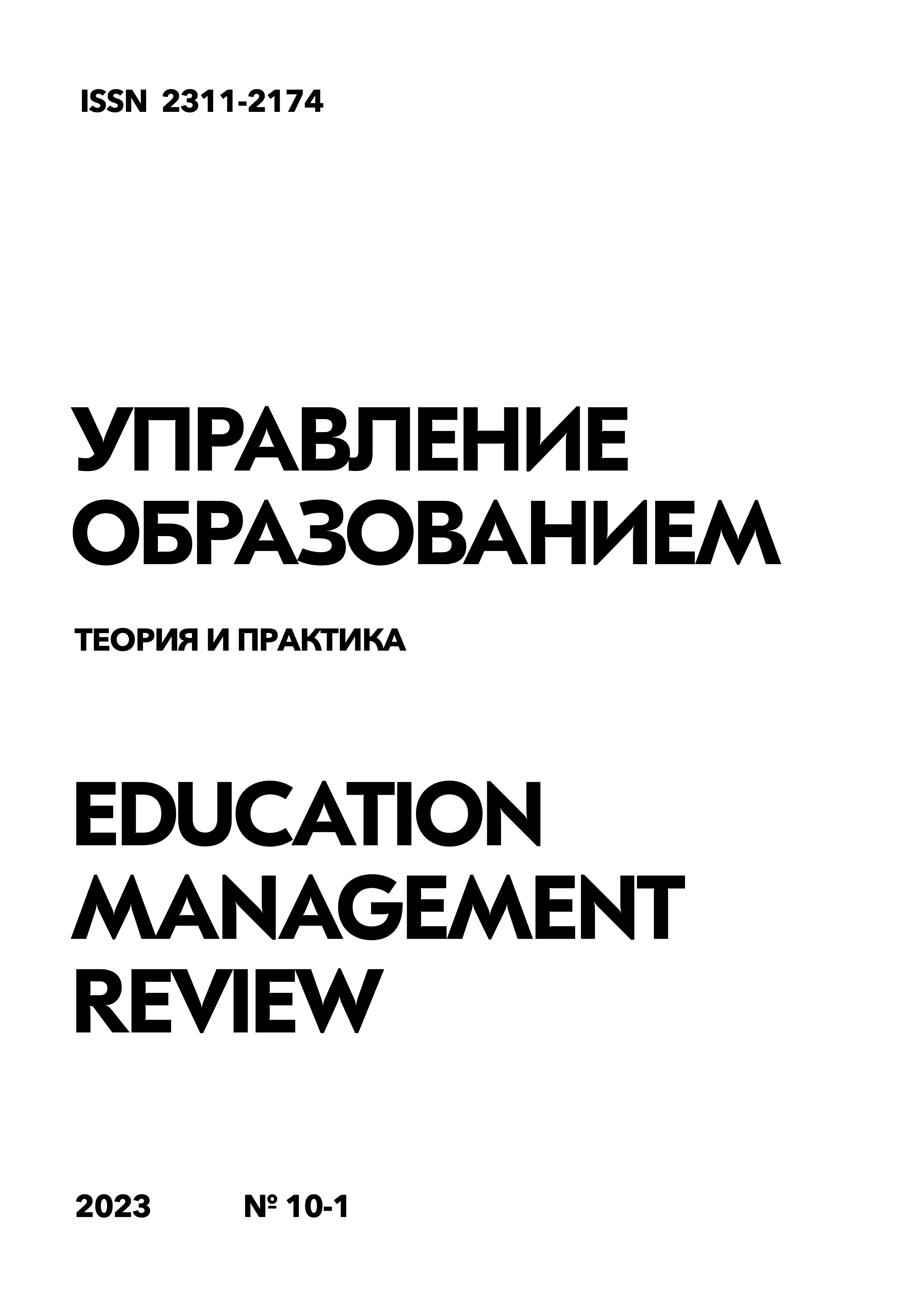Value-semantic system for preventing mental disorders in students
DOI:
https://doi.org/10.25726/w4781-0500-5673-vKeywords:
values, discourses, mental health, prevention, system, reflection, spiritual choice, morality, technology, awareness, identity, cognitive intelligence, safetyAbstract
Analysis of the results of studies aimed at assessing the dynamics of the number of mental health disorders in students of all age categories allows us to conclude that there is a steady increase in borderline mental disorders, causing persistent states of mental and educational maladjustment in students at all levels of education from primary to higher school. Assessing the degree of influence of various psychogenic factors on the development of this negative trend allows, in the opinion of most experts, to establish that the main reason is the critical increase in the information load on students. In the process of forming a post-industrial information society and transforming the world economic system, the incoming amount of information exceeds the adaptive capabilities of the individual, which leads to a natural increase in the number of functional disorders of the neurotic range in students. The article is devoted to the value-semantic system for the prevention of mental health disorders in students, which has proven its effectiveness in the process of twenty years of state testing in experimental sites and thirty years of practical application in educational organizations of various types. Since the natural classification of conditions influencing the result of self-awareness is determined by the presence of subjects of observation and the nature of relationships with them, the system for the prevention of mental health disorders is built on preparing students for adequate perception of various conditions and successful management of their state of well-being based on high quality value-semantic awareness.
References
Выготский Л.С. Мышление и речь. Изд. 5, испр. Издательство «Лабиринт», М., 1999. 352 с.
Всемирная организация здравоохранения. Усиление мер в области охраны психического здоровья. URL: https://www.who.int/ru/news-room/fact-sheets/detail/mental-health-strengthening-our-response
Жукоцкая А.В., Черненькая С.В. Глобальные вызовы современности и духовный выбор // Вестник МГПУ. Серия «Философские науки», 2023. № 2 (46). С. 23-31.
Курбатов А.В., Курбатова Л.А. Система ценностно-смыслового образования интеллектуальной экономики устойчивого мира // Евразийский союз ученых (ЕСУ) №3 (72) 2020, ч 4. С. 17-32. DOI: 10.31618/ESU.2413-9335.2020.4.72.643 URL: https://euroasia-science.ru/wp-content/uploads/2020/04/Euroasia__372_4_march_2020.pdf
Курбатов А.В., Курбатов В.А. Ценностно-смысловое самоуправление - средство гармонизации процесса трансформации идейных взглядов // Инновационные исследования как локомотив развития современной науки: от теоретических парадигм к практике. Электронный сборник научных статей по материалам XXIХ Международной научно-практической конференции. М.: НИЦ МИСИ. 2020. С. 33-53. URL: http://conference-nicmisi.ru/innovatsionnye-issledovaniya-kak-lokomotiv-razvitiya-sovremennoj-nauki-ot-teoreticheskih-paradigm-k-praktike.html
Курбатов А.В., Курбатова Л.А. Ценностно-смысловая философия // Современная наука: актуальные проблемы теории и практики. Серия «Познание». № 5. 2021. С. 142-150.
Курбатов А.В., Курбатова Л.А. Ценностно-смысловая психология в информационном обществе // Психология. Историко-критические обзоры и современные исследования. Московская область, Ногинск: изд-во «Аналитика родис», 2021. Т. 10. No 2А. С. 199-2910.
Курбатов А.В., Курбатова Л.А. Педагогическая технология ценностно-смысловой социологии // Управление образованием: теория и практика. Education Management ReviewТом 12 (2022). No4 / Volume 12 (2022). Issue 4. С. 132-147.
Леонтьев А.Н. Деятельность. Сознание. Личность URL: http://psy.msu.ru/people/leontiev/dsl/index.html?ysclid =lmnha0fqqu439595414
Лужков Ю.М. Возобновление истории. Человечество в XXI веке и будущее России. М.: МГУ, 2002. 198 с.
Маслоу А. Новые рубежи человеческой природы. Пер. с англ. М.: Смысл, 1999. 425 с.
Указ Президента Российской Федерации «Об утверждении Основ государственной культурной политики». Москва, Кремль. 2014. № 808. С. 18. URL: http://www.kremlin.ru/acts/bank/39208
Указ Президента Российской Федерации «О Стратегии развития информационного общества в Российской Федерации на 2017 – 2030 годы». Москва, Кремль. 2017. № 203. С. 29.
Указ Президента Российской Федерации «Об утверждении Основ государственной политики по сохранению и укреплению традиционных российских духовно-нравственных ценностей». Москва, Кремль. 2022. № 809. URL: http://www.kremlin.ru/acts/bank/48502
Указ Президента Российской Федерации «О Стратегии комплексной безопасности детей в Российской Федерации на период до 2030 года». Москва, Кремль. 2023. № 358. С. 17. URL: http://publication.pravo.gov.ru/Document/View/0001202305170008?ysclid=lkry122hqp289879068&index
Философский энциклопедический словарь. 2010. URL: http://philosofphy.niv.ru
Хисариева Н.А. Подходы к исследованию понятия психического здоровья // Вестник Челябинского государственного университета. Образование и здравоохранение. 2021. №2-3. С. 72-80.




